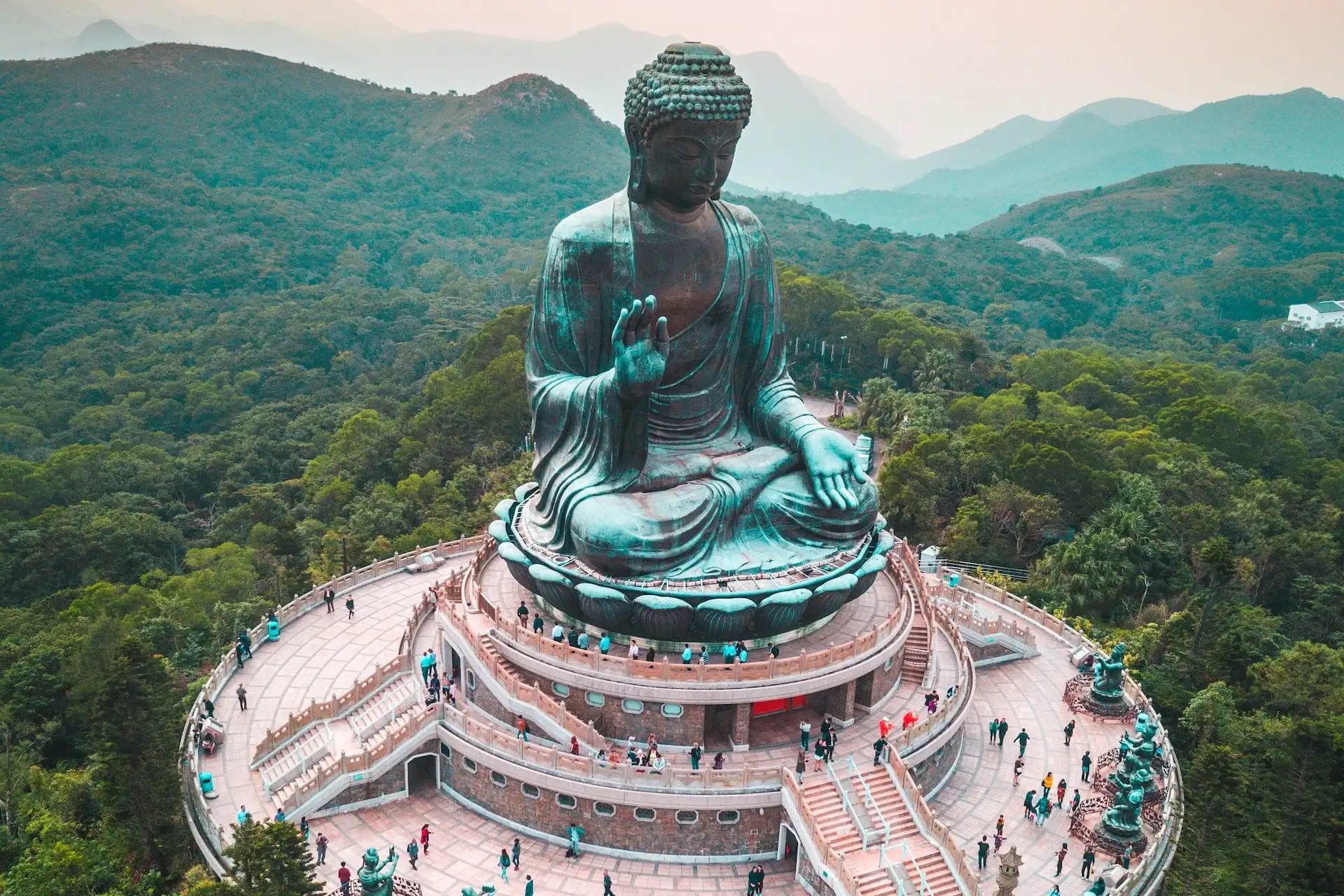Hong Kong
31 Religion, Culture, and Traditions
Chloe Li
Religion
Traditions and beliefs are very important aspects of many East Asian cultures. However, in Hong Kong, the majority of people are actually non-religious. Around 54.3% of Hong Kongers are non-religious, while the next largest percentile is of Buddhists and Taoists. The remaining population is made of of believers in the Protestant faith, Roman Catholicism, Islam, Hinduism, and the Sikh faith.
People in Hong Kong have much more religious freedom compared to China, which can be attributed to strong Western influence from the British colony. To many, religion is not a big aspect of their lives, while to others, certain practices of traditional Asian philosophies are prevalent in their lives even if not these people do not practice these beliefs religiously. Confucianism is the most significant of these traditional Asian philosophies, and derived from the Chinese philosopher Confucius, the teachings place great value on tradition and rites. In fact, Confucianism is so important in Hong Kong that the 3rd Sunday of September is deemed “Confucian Day.”
Buddhism and Taoism are also large aspects of religious Hong Kong. Because Buddhism is an important religion in China, much of Hong Kong is largely influenced by Buddhism, with much of the popular tourist destinations being monasteries, statues, or temples. As for Taoism, over 1 million Taoist followers reside in Hong Kong as of 2022, practicing simplicity, harmony, and a strong connection with nature. Some important Taoist temples are the Tin Hau Temple, the Wong Tai Sin Temple, and the Che Kung Temple.
As for the other religions, Christians and Muslims make up a notable part of the population. The Roman Catholic church was established in Hong Kong in 1841 as a mission prefecture, so many catholic schools and welfare programs that opened taught Roman Catholicism. Protestantism also derived from the settling of churches in 1841. On the other hand, many Indonesian and Pakistani people make up the Muslim community, but there are also plenty of Chinese, and thus Hong Kong people, who practice Islam. There are many educational facilities, financial aid, and medical care opportunities that opened due to these Muslims.


Culture
There are many perspectives within Hong Kong culture. As most families in Hong Kong are nuclear families, there is commonly a great emphasis on filial piety. As a result, superstitions and economic status may influence marriage as parent approval is necessary. Apart from this, many people in Hong Kong use their English names instead of their Chinese names.
Unsurprisingly, Cantonese is the most widely spoken language in Hong Kong, with English as its close second. Mandarin comes in third, with other dialects following behind. An important explanation behind the mix of cultures in Hong Kong can be attributed to the cultural fusion between the many influences on Hong Kong. The Han Chinese are the biggest influence, but the neighboring Guangdong province shares many similarities to Hong Kong, including majority Cantonese-speaking people. Additionally, Western influence has had its impact on Hong Kong as well, originating from an abundance of trade and travel as well as the British colonization. Obviously, the British influence cannot be ignored, which is why the second most spoken language is English instead of Mandarin. Furthermore, Hong Kong is known for its educational and social activism, resulting from Western influence, parallel to its comparatively free economy in contrast to mainland China. Thus, the Hong Kong economic and social circles are composed of more materialistic, wealth-conscious, and high-fashion elites, with the younger generation being more likely to reject tradition.
What do people in Hong Kong do for fun? Since Hong Kong has 2/5ths of the land being parks and greenery, recreation in Hong Kong is outdoors-focused. Tai Chi Chuan, kite flying, picnicking, hiking, and cycling are only a handful of the outdoor activities Hong Kongers enjoy. In 2008, Hong Kong even hosted the Equestrian sports of the Beijing Olympics.
Traditions
Many of the popular traditional events in Hong Kong come from that of China, such as Chinese New Year. It is the biggest festival of the year, and in Hong Kong, it is tradition to parade through Tsim Sha Tsui and watch fireworks explode over Victoria Harbor. Other notable festivals are the Dragon Boat, Mid-autumn, and Hungry Ghost festivals, which originate from China.
Other festivals are based on religion, including the Tin Hau Festival celebrating the Buddhist and Taoist goddess of the sea Tin Hau’s birthday, as well as the Cheung Chau Bun Festival, which celebrates Buddha’s birthday and the Taoist god Pak Tai.

Links
https://www.gov.hk/en/about/abouthk/factsheets/docs/religion.pdf
https://culturalatlas.sbs.com.au/hong-kong-culture/hong-kong-culture-religion
https://www.cia.gov/the-world-factbook/countries/hong-kong/
https://culturalatlas.sbs.com.au/hong-kong-culture/hong-kong-culture-naming#hong-kong-culture-naming
https://www.scmp.com/sport/article/3141770/why-do-hong-kong-china-and-taiwan-have-separate-teams-olympic-games
https://www.britannica.com/place/Hong-Kong/Cultural-life
https://www.chinahighlights.com/hong-kong/culture.htm

